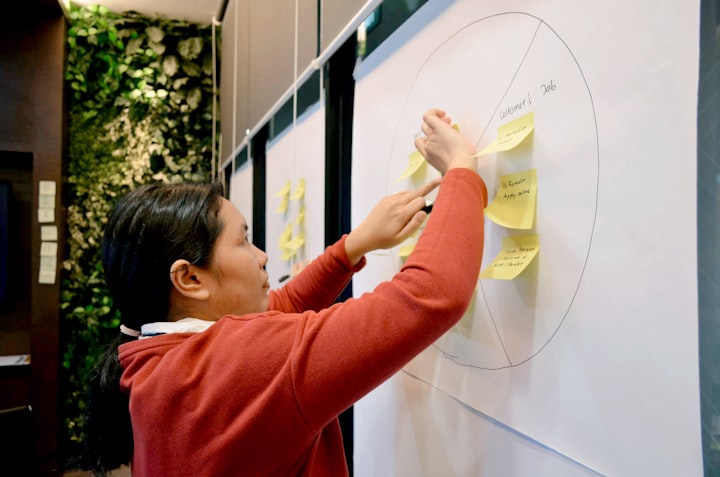College and Drug Abuse
With all the stress of college, many turn to drugs to try to stay focused or unwind. But leaving with a degree and not an addiction seems to be getting harder.

For many young adults, college will be their first introduction to a life lived without constant supervision. They find themselves pushed out of the nest, and into an educational pressure cooker.
Many stay in dorms or apartments on campus, and they experience a new type of freedom—the freedom to experiment with self-discovery, and, often, the freedom to try drugs and alcohol for the first time.
High School may be a time for tentative introduction to certain drugs, but alcohol is more likely to take center stage due to its accessibility. College can be a very different story. Larger colleges are often in the center of more populated areas. This makes them a prime location for the sale of illegal drugs, and dealers know this.
A large group of young adults dealing with some of the most stressful times in their lives are in a spot that makes them more vulnerable to the promises that drugs and alcohol seem to offer.
Why Do We Use Drugs and Alcohol?
When we think of college, we think of wild frat parties filled with drunken antics. These are often portrayed as laughable and memorable times in the lives of college students. What we fail to realize is just how dangerous and traumatic some of these ‘parties’ can be. The stereotype isn’t always consistent with the reality.
Popular culture combined with their own expectations normalizes drinking for many college students. They believe that this is a right of passage, and they end up drinking and using drugs just to live up to these expectations. Some young adults graduate without ever really experiencing negative consequences from their time spent partying, but others aren’t as fortunate.
There’s also a great deal of pressure placed on students to succeed. College is as competitive as it is expensive. The more specialized the degree, the higher the stakes. Without good grades, there are fewer good jobs, and then the quality of life goes downhill. That’s a huge responsibility, and it can push students to the breaking point. Some students look for drugs that help them to relax, while others look for drugs that can have the opposite effect.
In order to make it through those all-night study sessions, many young adults are turning to amphetamines. For some, this seems like a perfectly safe and viable option. These are stimulant medications used to treat those suffering from Attention Deficit Hyperactive Disorder (ADHD). Because they are prescribed by a doctor, and others take them with little risk. Many students don’t understand just how dangerous drugs like this can be.
They take things like Adderall, Concerta, Vyvanse, and Ritalin to cause feelings of wakefulness and intense focus. This may feel great at first, but after two days straight of staring at a book, they can start to suffer from serious side effects.
Exploring the Consequences

Drugs and alcohol introduce something that causes a chemical reaction in the body and alters the mental state. They are equally hard on the body. Binge drinking involves drinking a great deal over a short period of time impulsively.
This can lead to a loss of inhibitions that can protect us from making decisions that we’ll regret when we sober up. The rate of sexual assaults and reports of violent behavior go up exponentially on college campuses when drugs and alcohol are involved.
Some students manage to stop binge drinking after they graduate, but others aren’t so lucky. The last thing that anyone wants to leave college with is an addiction instead of a diploma. Using amphetamines as a study aid may convince the person that they’re doing much better at first, but it won’t take long for things to go downhill. In people who actually suffer from ADHD, these medications can actually have the opposite effect.
The stimulant medications can slow the racing thoughts of those who can’t always control their level of focus. But, in those who don’t need them, they create a feeling of excessive energy and mental clarity. This is a false feeling, and can quickly turn into severe anxiety and paranoia. These medications can interfere with a person’s ability to sleep, which contributes to the dangerous effects of the stimulant.
The more tired the student becomes from lack of sleep due to the use of stimulants, the more likely they are to depend on stimulants to keep them going through the day. It’s a vicious cycle, and one that has serious health implications. It places a great deal of stress on the heart and suppresses the appetite, creating a perfect catalyst for arrhythmia and heart problems.
Marijuana and benzodiazepines are also frequently used as a way to unwind. They can make the user feel very relaxed but also can cause issues with impulse control. When mixed with alcohol, they can lead to blackouts and even respiratory depression severe enough to cause death.
Abusing prescription pain medications is also popular, but can lead to heroin addiction which can be difficult to break. Keep in mind what path something seemingly innocent can take you. It doesn't take much to create an addiction.
How to Avoid Drugs and Alcohol, and Graduate Addiction Free
The best way to prevent the negative effects that drugs and alcohol can have on your college experience is to avoid them altogether. Battling an addiction can make graduating almost impossible. This is because of the way that substance abuse and chemical dependency can replace your goals, and derail your education.
Remember why you came to college in the first place. If you find yourself struggling to make it through classes, it’s important to understand that you’re not alone. Other people have been there, and you can find peer and instructor support on campus. There are also programs available to help those who are ready to break free from their dependence on drugs and alcohol. Even if you’ve made a mistake, it is possible to get your life back on track.
If you do struggle with a substance abuse problem there are programs that can be very effective for treating these addictions. There are also alternative healing methods that can be effective such as Reiki, acupuncture, Ibogaine therapy, NAD, and traditional rehab centers.
The key is to be honest with yourself about the dangers of substance abuse, and to take it seriously. ‘Just one time’ can turn into daily use if you justify it instead of seeing it for what is really is. Keep your future in mind, and make your long-term goals the most important ones.
About the Creator
Aeden Smith-Ahearn
Former heroin addict. Now I am proponent of alternative medicines, new-wave treatments, research, and education on psychedelic compounds for addiction, depression, and other disorders.







Comments
There are no comments for this story
Be the first to respond and start the conversation.